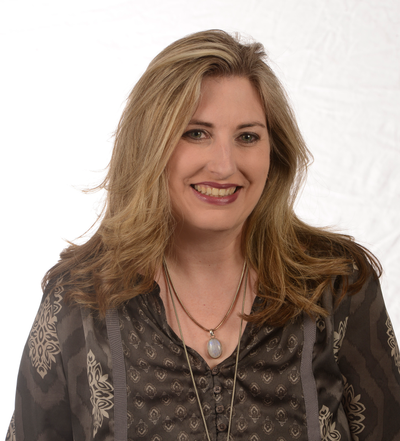.png?width=700&auto=webp&quality=80&disable=upscale)
Run a less wasteful business with tips from TerraCycle founder Tom Szaky
TerraCycle, a multinational recycling and upcycling company, got its start during founder Tom Szaky's freshman year at Princeton University. Here, the founder shares how natural retailers and natural businesses can become less wasteful.

Tom Szaky’s infectious passion has propelled TerraCycle, a multinational recycling and upcycling company, to be among the fastest-growing corporations in the nation. He will share more about his business from 9 to 10 a.m. on Thursday, Sept. 20, in room 308/309 at Natural Products Expo East.
Natural Foods Merchandiser: How do you describe your business for those who don’t know about it?
Tom Szaky: TerraCycle’s business revolves around the simple idea of making things recyclable that are not recyclable. Today, we are in 22 countries around the world where you can sign up to collect waste. You simply take a cardboard box and fill it up. Each waste stream goes into its own box, such as pens in one box, chip bags in another.
Once the box is full, you download a free shipping label and send it to us. We typically credit your account 2 cents for every piece of waste you collect to allocate to any school or charity in the country. Then we take the waste and we do one of three things to it: reuse it, if it’s possible, we do that for example in our shoe program; upcycle it, for example juice packs into backpacks; or recycle it, where, for example, we melt chip bags into trash cans.
So far, for every waste stream in the world, we found that we can either reuse, upcycle or recycle it into something new.
NFM: How do you work with independent natural foods retailers?
TS: Our primary client type is consumer product companies that finance these collection programs. In the natural foods space, we have Clif Bar, Stonyfield yogurt, Honest Tea, Revolution Foods, Dropps laundry detergent—the list goes on—as active partners. Our brand partners many times bring the programs to retail.
Today we collect in 50,000 retailers around the world; we run in-store programs in which we work with a brand like Honest Tea that develops a collection box for a retailer to deploy in its store for that specific type of waste. Another way is for natural foods retailers to create a collection program for their private-label products.
NFM: Can you share a preview to your Expo East talk?
TS: What I’m going to be talking about first is the concept of waste, because we live in a world where there’s garbage everywhere. I think it’s important for people to take a step back to reflect on what garbage is and why it exists. Then I’m going to talk about how we solve garbage—the theory and practice of how TerraCycle does it, and how we found that anything from chewing gum to cigarette butts to dirty diapers can be recycled, reused or upcycled. I’m also going to talk about how we’ve seen brands have very large wins from creating voluntary extended products responsibility programs.
NFM: Is TerraCycle more business with a mission or mission that became a business?
TS: A bit of both. We view ourselves as a nonprofit that’s in the skin of a for-profit.
NFM: What makes TerraCycle a fastest-growing company, as it has been recognized by Inc.?
TS: TerraCycle has no competition. We offer something very unique and something that brands have found very big value in. Making nonrecyclable waste recyclable creates major ROI for our brand partners and really aggressive rate of returns. Additionally, we decided to expand very fast. We have offices in 22 countries—so we have a culture of fast growth, which I think has helped reinforce our actual fast growth.
NFM: What can retailers do to reduce waste?
TS: They can use their location as collection points for waste, whether that’s recyclable waste or nonrecyclable waste. Partnering with companies like TerraCycle or any other firm that’s offering the ability for the consumer to bring the waste back to the retailer is a very big step and encourages foot traffic within the retailer’s operation.
The second thing they can do is look at the products they make under their own logo and create voluntary extended product responsibility programs for their own items. The third thing, and I think maybe the most important, is to give benefit to brands that are taking deep environmental steps by featuring them with better shelf space.
The biggest issue in all of this green hoopla—and I’ve been in this space and had passion about it for 10 years—is that the most important vote that people cast is what they buy. Retailers use shelf space to vote for a product. I think that’s very important because people many times, whether they are buyers for a retailer or just consumers, exercise that vote passively, without consciousness. So purchase according to what you believe in and do that really deeply.
NFM: As creativity is integral to your business, do you have tips you can offer readers for fostering creativity in their operations?
TS: I think it’s a whole slew of things, but it all boils down to culture. If you look at the TerraCycle offices, every aspect is made from garbage. It’s an incredibly creative place to work. One of the simplest ways to manifest culture is the physicality of the space. Instead of a bunch of gray cubicles or something normal, make your office into a really funky spot that inspires creativity.
The second is to create a culture of creativity, and the best way to do that is to encourage failure. I think it is important to make it easy for people to test an idea and make it totally cool to fail—encouraging failure vs. penalizing failure. That will beget creativity.
NFM: What’s next?
TS: Growth, opening in more countries. We just opened Puerto Rico; and we hope to be in maybe 25 countries by the end of the year, then 30 by the end of 2013. We plan to open Japan and a few more countries in Europe. Then we want to launch more waste streams and grow those waste stream collections to be as absolutely large as possible.
About the Author(s)
You May Also Like




